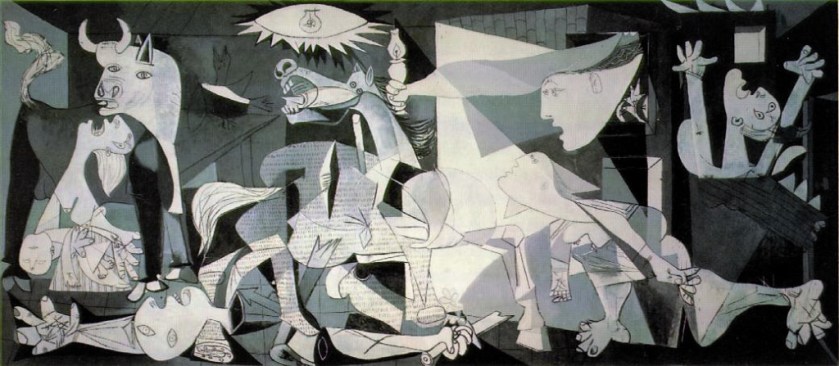The title of this post cribs from a 1942 Wallace Stevens poem, “Notes Toward a Supreme Fiction.” Stevens writes:
So poisonous are the ravishments of truth, so fatal to
The truth itself.…
He also writes:
The poem refreshes life so that we share
For a moment, the first idea….
Elsewhere, in Stevens’ “On Modern Poetry,” also from 1942, we read:
It has to think about war
And it has to find what will suffice.
Such thoughts give entrée to a meta-critique of war literature. What does it think it is doing? What are the possibilities? Timothy O’Brien’s magnificent “How to Tell a True War Story” offers superb contemporary expression of the issues involved. O’Brien dramatizes and suggests their impossibly tangled complexity. What is more important, realistic truth or emotional truth? How is the truth related to the credibility of the speaker? How does truth relate to the individual perspective of the witness/participant and the reader? These issues are inherent in all discussion of literary aesthetics, but they are magnified in war literature by the sensational nature of the subject matter, the intensity of the emotional involvement, and the important moral and political consequences at stake.
Sometimes it seems like the best answer might be that of the chorus of Of Monsters and Men’s hit “Little Talks”:
Hey!
Don't listen to a word I say
Hey!
The screams all sound the same
Hey!
Probing deeper, critic Laura Brandon, writing about war art, looks to redefine the subject “internationally through time” as more than “battle pieces, an aspect of national history, or military illustration.” She establishes a typology of war art: “propaganda, memorial, protest, and/or record.” That’s helpful. Riffing off Brandon’s suggestions, I came up with ten questions pertinent to the aesthetics of war literature and art. Read through them and let me know if they work for you:
1. “There is no document of civilization which is not at the same time a document of barbarism.” -Walter Benjamin, Theses on the Philosophy of History (1940). In what ways is Benjamin’s quote particularly true of war literature? Is there a way that war literature evades or transcends being a “document of barbarism”?
2. Is war literature inherently “anti-war” literature?
3. Does war literature celebrate war or perpetuate ways of thinking about war that increase, rather than decrease, the prospects for future war?
4. Is war literature written by veterans inherently more valuable, credible, or interesting than that written by those who haven’t served or even deployed (as a journalist, aid worker, contractor, etc)?
5. Heroism, fear/courage, guilt, shame, camaraderie, adventure, horror, shock—are these common tropes of war literature beyond critique? Why or why not? If not, then what about them invites investigation?
6. How does the war literature complicate the desire of the American public to “support the troops”?
7. What is enjoyable about war literature?
8. What does the war literature help us understand better?
9. How does war literature complicate the relationship between remembering and reporting?
10. What is beautiful about war literature?
Happy six-month anniversary of the Time Now blog. Thanks for reading and your support so far. My goal is a post a week for a year, more if I can keep it up. I’ve covered a lot of ground already, but there is much left to say. The summer writing season is here, so let’s go.

Reference:
Laura Brandon, Art and War. Taurus Press, 2007.

Those ten questions are amazing. I plan to use them next time I am reading or reviewing war literature.
This blog, too, is phenomenal. I have never read such deep and thoughtful examinations of war in film, music, and lit. I don’t want to miss a single post — each one has so much to offer. Thank you!
Thanks, Andria816, for the kind words and for digging so deep in the archives. It did me good to review those questions myself as I prepare for upcoming presentations and think about future posts.